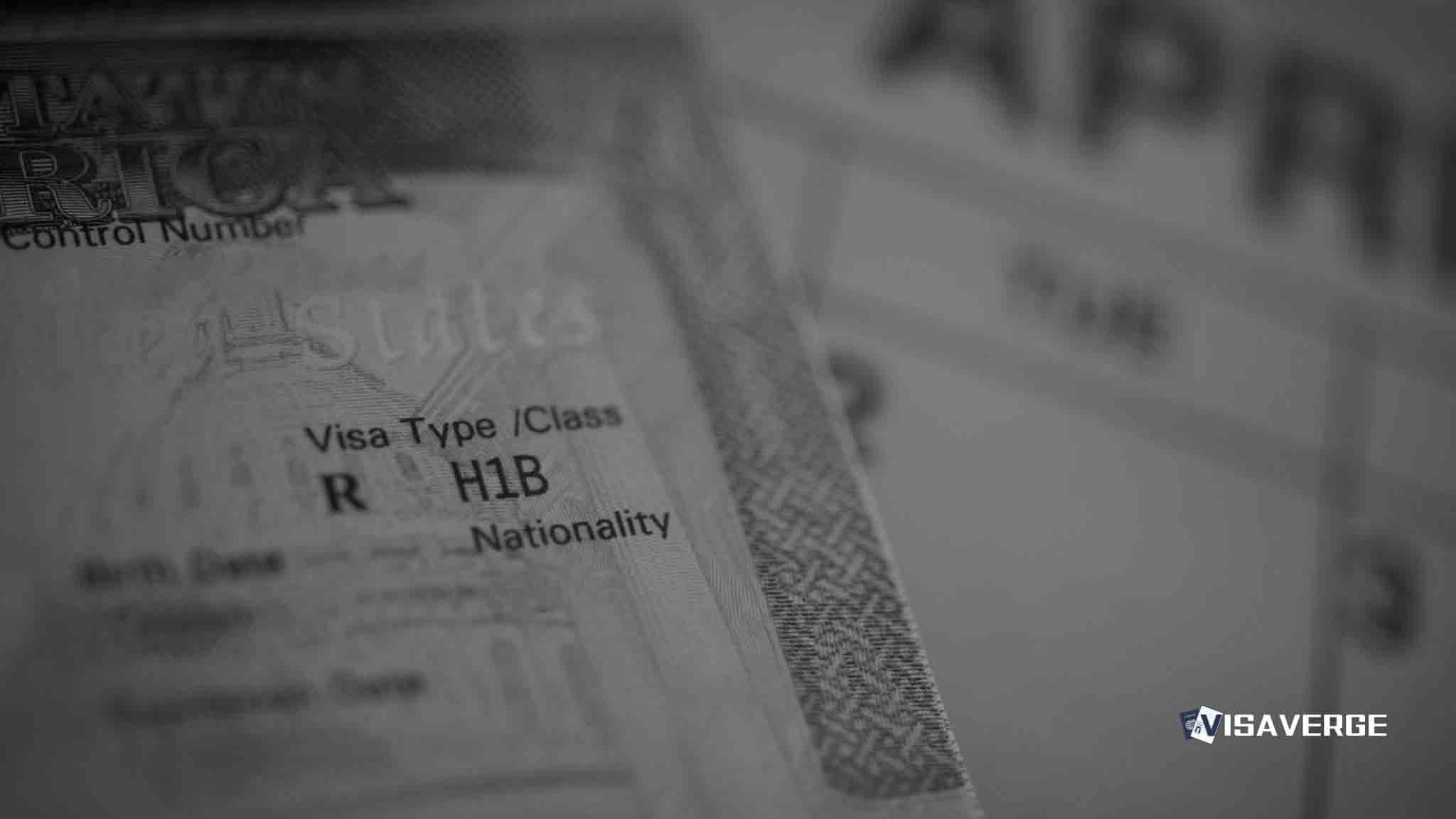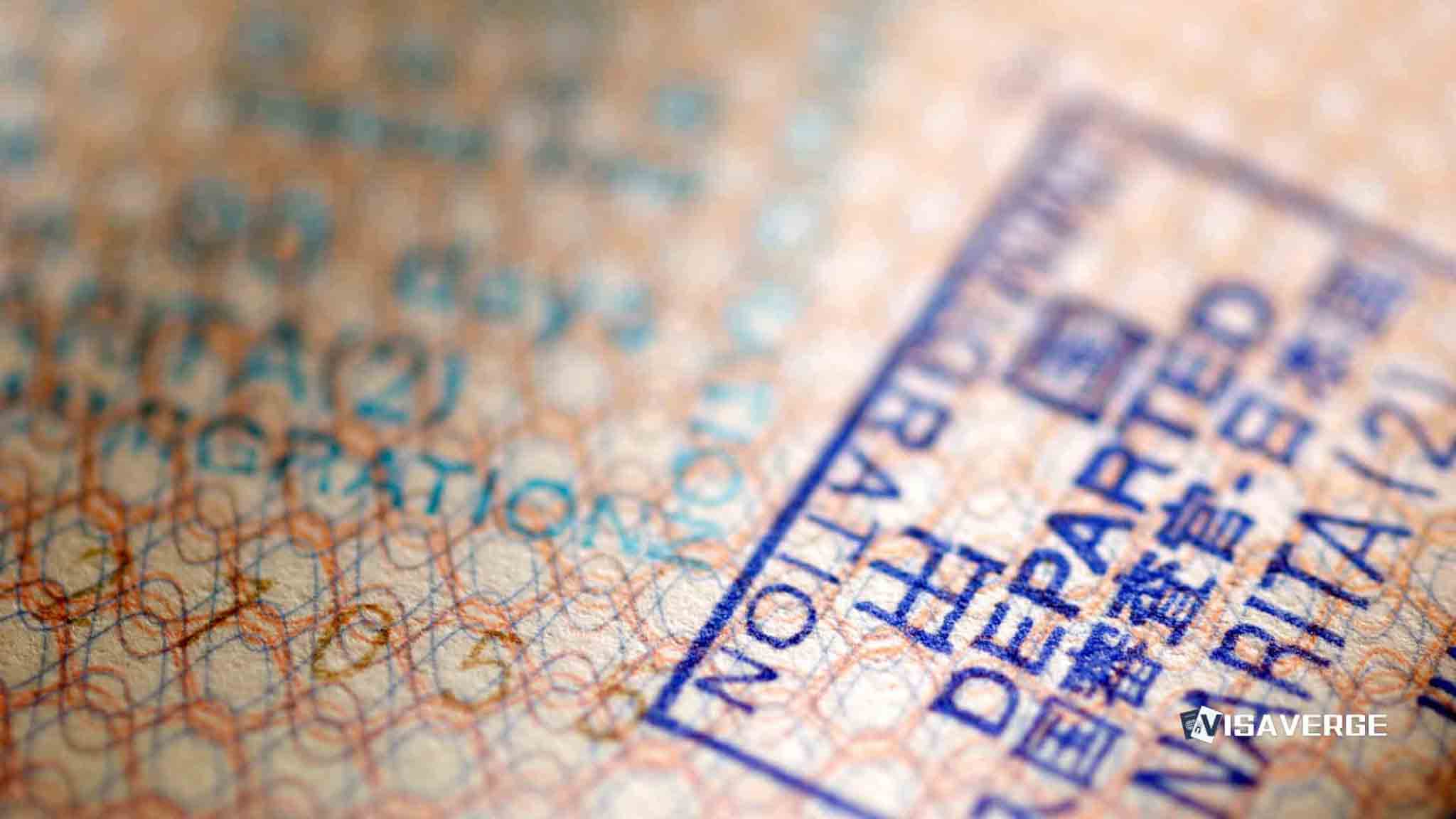Understanding H1B Visa Taxes: A Guide for Visa Holders
Navigating the U.S. tax system can feel overwhelming, especially for those on an H1B visa. As temporary workers contributing to the American economy, it’s important to understand your tax obligations, including those related to Social Security and Medicare.
Are H1B Visa Holders Required to Pay Social Security?
The short answer is yes, H1B visa holders are required to pay Social Security taxes. These contributions provide you with potential benefits, should you meet the eligibility criteria, such as coverage under the U.S. Social Security program for retirement, disability, or survivors’ benefits.
What About Medicare Taxes?
Similarly, H1B visa holders must also pay Medicare taxes. Medicare is a health insurance program primarily for those aged 65 or older, but it also provides coverage to younger people with disabilities. Paying into this system is mandatory during your employment in the United States.
H1B Visa and Medicare Tax Obligations

Your obligations for Medicare tax are consistent, regardless of your visa status. Like U.S. citizens, you’re contributing to a system that ensures healthcare availability for those who qualify.
Tax Deductions and Exemptions: What You Need to Know
While H1B visa holders are subject to both Social Security and Medicare taxes, it’s worth noting that you may have some exemptions or deductions available to you, depending on your situation. Be sure to explore these options to manage your tax obligations effectively.
For instance, if you’re a resident alien for tax purposes, you’re treated like a U.S. citizen and must report your global income. Non-resident aliens, however, only need to report income that is sourced in the U.S.
Reporting and Filing Taxes
All workers in the United States, including H1B visa holders, must file their taxes annually with the Internal Revenue Service (IRS). Reporting your earnings and paying the appropriate taxes is not just about compliance; it maintains your eligibility for potential future immigration benefits.
For more information, you can visit the official IRS website or consult with a tax professional well-versed in H1B visa taxes.
Planning Ahead: Financial and Legal Considerations
Financial planning is critical for H1B visa holders. Understanding your tax obligations means you can budget accordingly and avoid any surprises come tax season. Additionally, remaining compliant with U.S. tax laws is vital for maintaining your immigration status.
Conclusion
As an H1B visa holder, it’s important to recognize that Social Security and Medicare taxes are part of your obligations while working in the U.S. While the thought of navigating another country’s tax system may seem daunting, there are resources to assist you. By staying informed and seeking expert advice when needed, you can ensure that you meet your tax obligations and maintain good standing on your immigration journey.
Remember, while this information provides a general understanding, each individual’s tax situation may be unique. For personalized advice, consider reaching out to a tax professional familiar with the nuances of H1B visa taxes.
Still Got Questions? Read Below to Know More:
If I’m working in the U.S. with an H1B visa and plan to return to my home country after my contract ends, can I get the Social Security taxes I paid refunded
If you’ve been working in the U.S. on an H1B visa, understanding what happens to the Social Security taxes you’ve paid is important when you’re planning to return to your home country. Generally, the Social Security taxes you pay while working in the U.S. contribute to your potential future Social Security benefits. However, as a non-resident H1B visa holder, you are not automatically entitled to a refund of these taxes upon leaving the U.S. Social Security taxes only get refunded under specific circumstances, typically through totalization agreements between the U.S. and other countries.
The U.S. has entered into bilateral Social Security agreements, known as totalization agreements, with several countries. These agreements allow for coordination of social security coverage and benefits for people who have worked in both countries. If your home country has a totalization agreement with the U.S., and you qualify under the terms of the agreement, you may be able to receive benefits for the work you performed in the U.S. even after returning to your home country. However, if you do not meet the criteria for benefits outlined in the totalization agreement, you cannot get the Social Security taxes refunded.
To see if your country has a totalization agreement with the U.S. and for more details about these agreements, you can visit the official U.S. Social Security Administration website: International Programs. If your country does not have a totalization agreement with the U.S., or if you do not meet the eligibility requirements for benefits, the Social Security taxes you’ve paid while on an H1B visa generally cannot be refunded.
Can my non-working spouse, who is here on an H4 visa due to my H1B status, be covered under Medicare or any other U.S. health insurance program
Yes, your non-working spouse on an H4 visa, which is dependent on your H1B visa status, can be covered under a health insurance program in the U.S., such as private health insurance. However, H4 visa holders are generally not eligible for Medicare unless they meet certain conditions. Medicare is typically available to permanent residents or U.S. citizens who have paid into the system for a minimum number of quarters through employment.
For your spouse to be covered under a health insurance program, you have a couple of options:
- Employer-Sponsored Health Insurance: If your employer offers a family health insurance plan, you can usually add your H4 spouse to your coverage. It’s worth checking with your HR department or benefits administrator to understand the specifics of adding dependents to your policy.
- Purchase Private Health Insurance: Your spouse can buy an individual health insurance plan directly from a private insurance company, through a broker, or from the Health Insurance Marketplace established under the Affordable Care Act. Plans and costs vary, and your spouse’s immigration status as an H4 visa holder allows them to purchase health insurance through the Marketplace.
As for quotes from authoritative immigration sources regarding health insurance for H4 visa holders, here is one from the HealthCare.gov website:
“You can buy private insurance, called a Qualified Health Plan, on the Marketplace. You may qualify for savings based on your income.” – HealthCare.gov
For more specific information about coverage and conditions of eligibility, it’s best to refer to official resources:
- Medicare: https://www.medicare.gov/
- Health Insurance Marketplace: https://www.healthcare.gov/
If I’m considering applying for permanent residency in the future, how might the taxes I pay now on an H1B visa affect my eligibility or the application process
When you’re on an H1B visa and considering applying for permanent residency (also known as a Green Card), how you handle your taxes can play an important role in the application process. Here are a few key points to consider:
- Proof of Lawful Employment and Income:
Paying taxes on your H1B visa demonstrates that you’re lawfully employed and have a stable source of income. This is crucial because, for your Green Card application, you’ll need to prove that you will not become a public charge. The USCIS states, “You must show that you will not become a public charge by showing evidence of your financial stability.” - Good Moral Character:
Keeping a clean tax record is part of demonstrating good moral character, a requirement for permanent residency. Filing your federal and state taxes correctly and on time each year showcases your adherence to U.S. laws, which is a plus for your application. -
Social Security and Medicare Contributions:
Although not directly related to Green Card eligibility, paying into Social Security and Medicare can benefit you in the long run. If you become a permanent resident and later a U.S. citizen, the number of quarters you paid into these systems can count toward eligibility for benefits.
Remember, immigration and taxes are complex issues, and the way you handle your taxes now can be a reflection of your reliability and willingness to comply with U.S. laws. For comprehensive guidelines, always refer to the official USCIS website or consult a legal expert.
For further details on Green Card eligibility and requirements, visit the official U.S Citizenship and Immigration Services (USCIS) website: USCIS Green Card.
As an H1B visa holder, if I have a baby in the U.S., do I need to do anything special when filing my taxes to account for my newborn child
As an H1B visa holder, if you have a baby in the U.S., there are some important tax-related steps you’ll need to follow to account for your newborn child when filing your taxes:
- Obtain a Social Security Number (SSN) for your child: You should apply for an SSN for your newborn as this will be required when claiming your child as a dependent on your tax return. This process can often be started at the hospital when your child is born through the Social Security Administration (SSA) or by visiting a local SSA office.
- Claim your child as a dependent: Once you have the SSN for your child, you can claim them as a dependent on your tax return if they meet the requirements. This can provide tax benefits such as the Child Tax Credit. To claim the credit for Tax Year 2021, “your child must have a Social Security number (not an ATIN or ITIN) valid for employment,” and there are income limits and other criteria that you need to meet.
For more specific information regarding your situation, it’s important to refer to the Internal Revenue Service (IRS) guidelines or consult with a tax professional. Additionally, you can visit the official IRS website for guidance on tax benefits for families: IRS Tax Benefits for Families.
Remember, tax laws can be complex, and specific situations might require professional advice, especially considering immigration status and individual circumstances.
What kind of tax advice should I look for if I have investment income from my home country while living in the U.S. on an H1B visa
When living in the U.S. on an H1B visa and earning investment income from your home country, it’s crucial to understand your tax obligations in both the United States and your native country. Here’s the kind of tax advice you should look for:
- U.S. Tax Liability: Determine if you are considered a resident alien for tax purposes. H1B visa holders usually pass the Substantial Presence Test and are treated as resident aliens. This means you are subject to U.S. tax on your global income, including investment income from your home country. An expert can help you understand how foreign income is reported on your U.S. tax return (Form 1040) and any applicable tax treaties between your home country and the U.S. that might affect your tax liabilities.
“Income from foreign investments by a resident alien of the United States is reportable and potentially taxable on their U.S. tax return.”
(Source: IRS – Taxation of Nonresident Aliens)
-
Foreign Tax Credit: If you paid taxes on your investment income in your home country, you should get advice on foreign tax credits which may reduce your U.S. tax bill. An expert can guide you on how to claim this credit using IRS Form 1116 to avoid being taxed twice on the same income.
“You may be able to claim a credit for the foreign taxes paid on your foreign investment income, thereby avoiding or reducing double taxation.”
(Source: IRS – Foreign Tax Credit)
-
Reporting Foreign Accounts: Seek advice on reporting requirements for foreign financial accounts, such as the Report of Foreign Bank and Financial Accounts (FBAR) and the Foreign Account Tax Compliance Act (FATCA). Non-compliance can result in significant penalties.
“If you have foreign financial accounts or assets, you may have to file an FBAR or FATCA Form 8938 with the Treasury Department.”
(Source: IRS – Report of Foreign Bank and Financial Accounts (FBAR), FATCA)
It’s important to consult with a tax advisor who has expertise in expatriate and non-resident tax issues to ensure compliance and optimal tax planning. Make sure they’re well-versed in both U.S. tax law and the tax treaty that applies to your situation.
Learn today
Glossary or Definitions:
- H1B Visa: A non-immigrant visa that allows employers in the United States to hire foreign workers in specialty occupations. It is typically granted to highly skilled professionals in fields such as engineering, IT, and medicine.
- Social Security Taxes: Taxes paid by individuals to fund the U.S. Social Security program, which provides benefits such as retirement, disability, and survivors’ benefits. H1B visa holders are required to pay these taxes.
-
Medicare Taxes: Taxes paid by individuals to fund the Medicare program, a government health insurance program primarily for people aged 65 or older. H1B visa holders are also required to pay these taxes.
-
Resident Alien: A non-U.S. citizen who meets certain criteria and is classified as a resident for tax purposes. Resident aliens are subject to the same tax obligations as U.S. citizens, including reporting income from both U.S. and global sources.
-
Non-Resident Alien: A non-U.S. citizen who does not meet the criteria to be classified as a resident for tax purposes. Non-resident aliens only need to report income that is sourced within the United States.
-
Internal Revenue Service (IRS): The government agency responsible for collecting taxes and enforcing tax laws in the United States. H1B visa holders, like all U.S. workers, must file their taxes annually with the IRS.
-
Compliance: The act of adhering to the rules, regulations, and laws of a particular country. H1B visa holders must comply with U.S. tax laws to maintain good standing and eligibility for potential future immigration benefits.
-
Budgeting: The process of creating a plan for how to spend and save money. H1B visa holders should budget accordingly to manage their tax obligations and avoid surprises during tax season.
-
Immigration Status: The legal category under which a foreign national resides in a country. H1B visa holders must maintain their immigration status by meeting their tax obligations and complying with U.S. immigration laws.
-
Tax Professional: A licensed professional, such as a certified public accountant or tax attorney, who specializes in tax law and can provide personalized advice and assistance with tax matters, including H1B visa taxes.
Expert Insights
Did You Know?
- Diversity Visa Lottery: The United States offers a unique immigration opportunity through the Diversity Visa Lottery, also known as the Green Card Lottery. Each year, approximately 50,000 visas are randomly allocated to individuals from countries with low rates of immigration to the U.S. This program aims to promote diversity and provide individuals from underrepresented regions an opportunity to live and work in the United States.
- The First Immigration Quota System: In 1921, the U.S. implemented the Emergency Quota Act, establishing the first numerical limitations on immigration. This Act set a cap on the number of immigrants who could enter the U.S. from each country. The famous symbol of America, the Statue of Liberty, stands as a reminder of the nation’s immigrant history, but the introduction of the quota system reflected a shift towards more restrictive immigration policies.
-
Language Diversity in the U.S.: Did you know that the United States does not have an official language? While English is widely spoken and used for government proceedings, the country embraces linguistic diversity. Over 300 languages are spoken across the nation, ranging from Spanish and Chinese to Tagalog and Arabic. This linguistic mosaic highlights the multicultural fabric of the United States.
-
Brain Drain and Brain Gain: Brain drain refers to the emigration of highly skilled individuals from their home countries. However, there is also a concept known as brain gain, which refers to the positive impact of immigration by high-achieving individuals. Studies show that immigrants in the United States have significantly contributed to the country’s scientific research, entrepreneurship, and innovation, making it a hub for talent and expertise.
-
Birthright Citizenship: The United States practices birthright citizenship, which means that any person born on American soil is automatically granted U.S. citizenship, regardless of their parents’ immigration status. This principle, enshrined in the Fourteenth Amendment to the U.S. Constitution, ensures that individuals born in America have the same rights and opportunities as their fellow citizens.
-
Ellis Island: Ellis Island, located in New York Harbor, served as the primary immigration gateway to the United States from 1892 to 1954. During this period, millions of immigrants passed through Ellis Island, seeking a new life in America. It is estimated that over 40% of current U.S. citizens can trace their ancestry back to at least one immigrant who entered the country through Ellis Island.
-
Refugee Resettlement: The United States has a long history of welcoming refugees. Since the end of World War II, the country has been a leader in refugee resettlement, providing a new home to individuals fleeing persecution, conflict, and natural disasters. The Refugee Resettlement Program offers assistance and support to refugees as they rebuild their lives in the United States, ensuring safety and opportunities for a fresh start.
-
The Bracero Program: In response to labor shortages during World War II, the United States established the Bracero Program. From 1942 to 1964, this program allowed millions of Mexican temporary workers to enter the U.S. for agricultural and railway work. The program had a significant impact on both the U.S. and Mexican economies, shaping the dynamics of cross-border labor migration.
-
The Chinese Exclusion Act: In 1882, the Chinese Exclusion Act was signed into law, becoming the first major federal law to restrict immigration based on a specific ethnicity. This act effectively banned Chinese laborers from entering the United States and was not repealed until 1943. The Chinese Exclusion Act shaped immigration policy, highlighting a contentious period in American history.
-
Naturalization: Becoming a U.S. citizen through naturalization is a significant milestone for immigrants. To qualify for naturalization, individuals must meet certain requirements, including demonstrating English proficiency, knowledge of U.S. civics, and a commitment to abide by the laws of the United States. The naturalization process symbolizes the integration of immigrants into American society and allows for greater participation in civic life.
And that’s a wrap on understanding H1B visa taxes! Navigating the U.S. tax system can be intimidating, but with the right knowledge, you’ll be well-prepared. If you want to dive deeper into this topic or explore more about H1B visas, head over to visaverge.com for helpful resources and expert advice. Happy exploring, and best of luck on your immigration journey!








